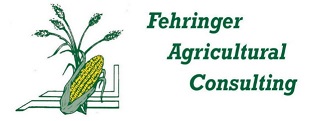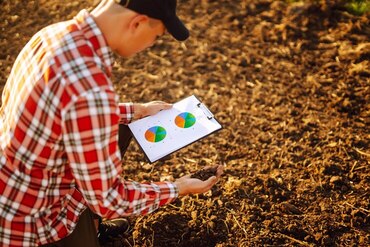Blog

The Importance of Soil Testing in Sustainable Agriculture
Soil testing is a cornerstone of modern, sustainable agriculture. By understanding the composition and quality of soil, farmers and agricultural consultants like Fehringer Agricultural Consulting can make informed decisions that lead to more sustainable farming practices. This 900-1000 word blog post outlines the importance of soil testing and its impact on sustainable agriculture.
Understanding Soil Health
Soil health is fundamental to the success of any farming operation. A healthy soil supports robust plant growth by providing essential nutrients, water, and a stable ecosystem. Soil testing provides critical information on pH, nutrient levels (like nitrogen, phosphorus, and potassium), and organic matter content. These data points are crucial for assessing soil health and identifying deficiencies that could impact crop productivity.
Nutrient Management
One of the main benefits of soil testing is effective nutrient management. Over-application of fertilizers can lead to nutrient runoff, which may contaminate local waterways and lead to environmental degradation. Conversely, under-application can lead to poor crop yields. Soil tests help farmers apply the correct amount of fertilizers, ensuring optimal crop growth while minimizing environmental impact. This practice not only saves costs by reducing unnecessary fertilizer use but also supports a more sustainable approach to agriculture.
Reducing Environmental Impact
Soil testing plays a significant role in reducing the environmental impact of farming. By providing precise information on soil nutrient levels, farmers can avoid the overuse of chemical inputs such as fertilizers and pesticides. This precision helps in maintaining the natural soil balance, promoting biodiversity, and reducing the carbon footprint of farming operations. Sustainable soil management practices like cover cropping and rotation can be better planned with accurate soil data, enhancing soil structure and fertility over time.
Supporting Sustainable Farming Practices
Accurate soil testing supports several sustainable farming practices. For instance, it allows for the implementation of precision agriculture—using data to precisely manage both spatial and temporal variability in farming operations. This can include targeted fertilization programs and variable rate technology (VRT) that adjusts the amount of inputs applied to different areas of a field based on soil test results.
Economic Benefits
Apart from environmental benefits, soil testing also offers economic advantages. By optimizing fertilizer use, farmers can reduce costs significantly. Additionally, healthy soil produces higher yields and better quality crops, which can lead to increased profits. Long-term, maintaining soil health through regular testing and sustainable practices can ensure the longevity and productivity of agricultural land.
Case Studies and Real-World Examples
Including real-world examples from successful projects can illustrate the tangible benefits of soil testing. For instance, a case study on a local Montana farm that improved its yield by 20% through targeted nutrient management based on soil tests could be compelling. Such examples provide practical insights and encourage more farmers to adopt soil testing.
Conclusion
Soil testing is not just a technical necessity but a fundamental practice for sustainable agriculture. By ensuring that nutrients are judiciously managed and environmental impacts are minimized, soil testing helps sustain the earth's most vital resource—its soil. For consultants and farmers alike, investing in regular soil testing is a step towards more responsible and productive farming practices.


